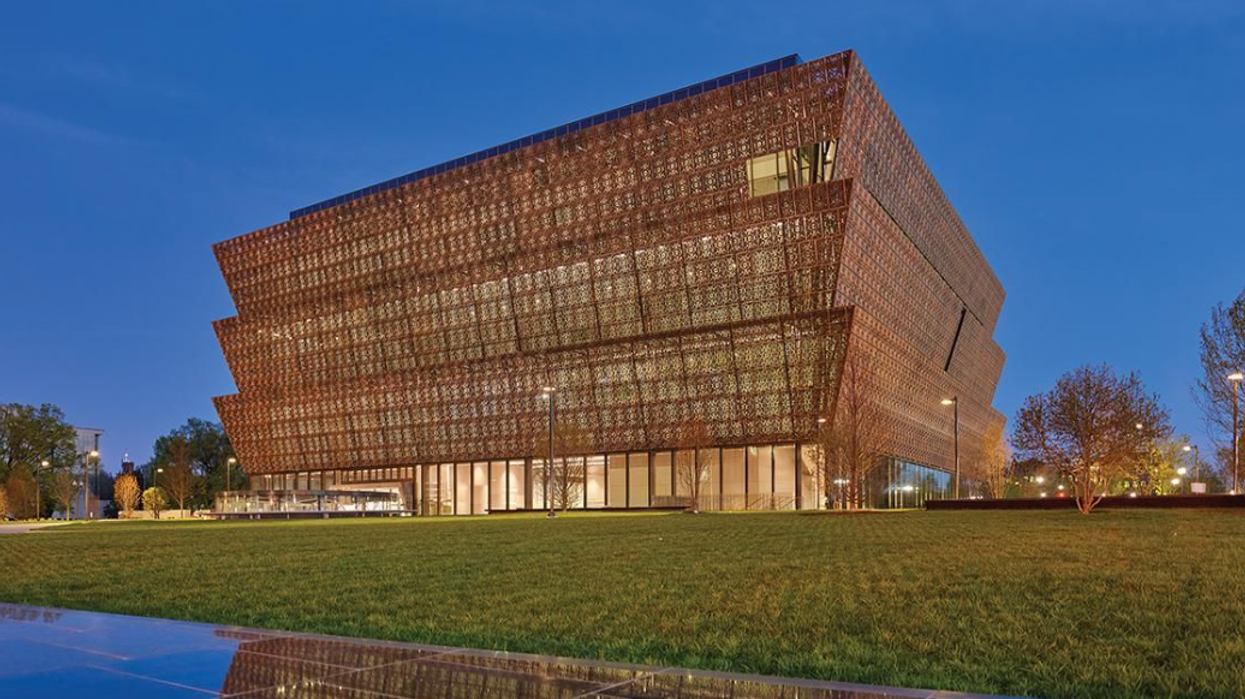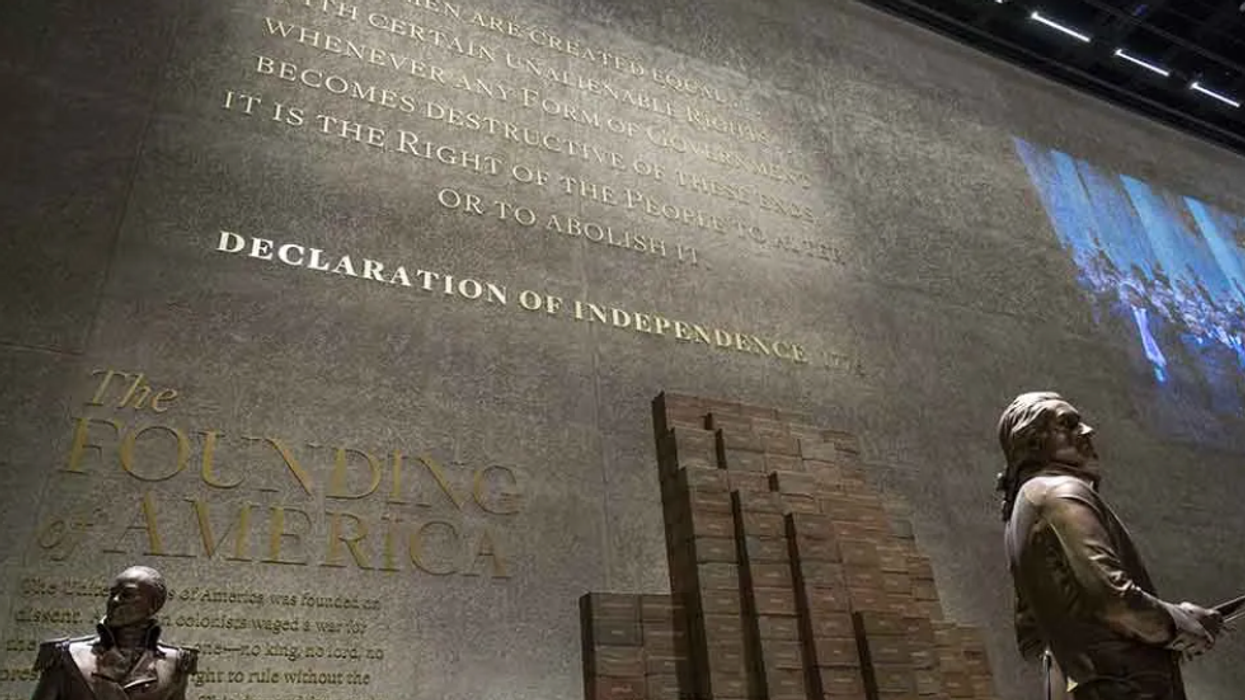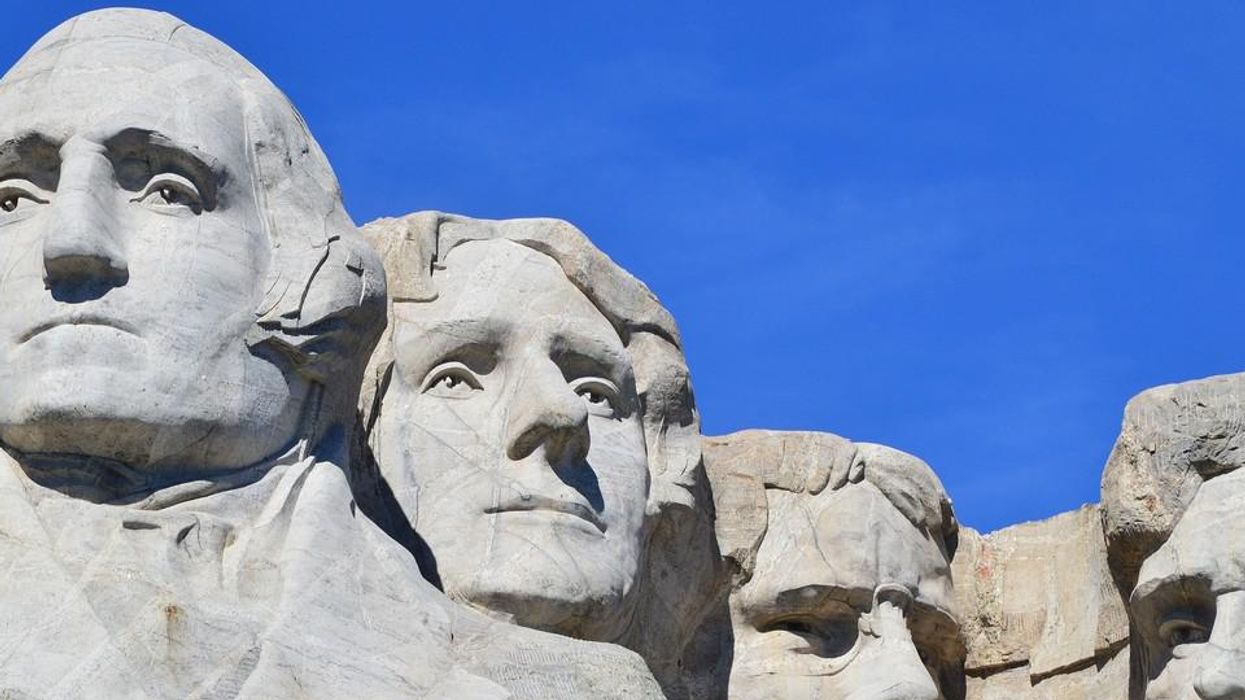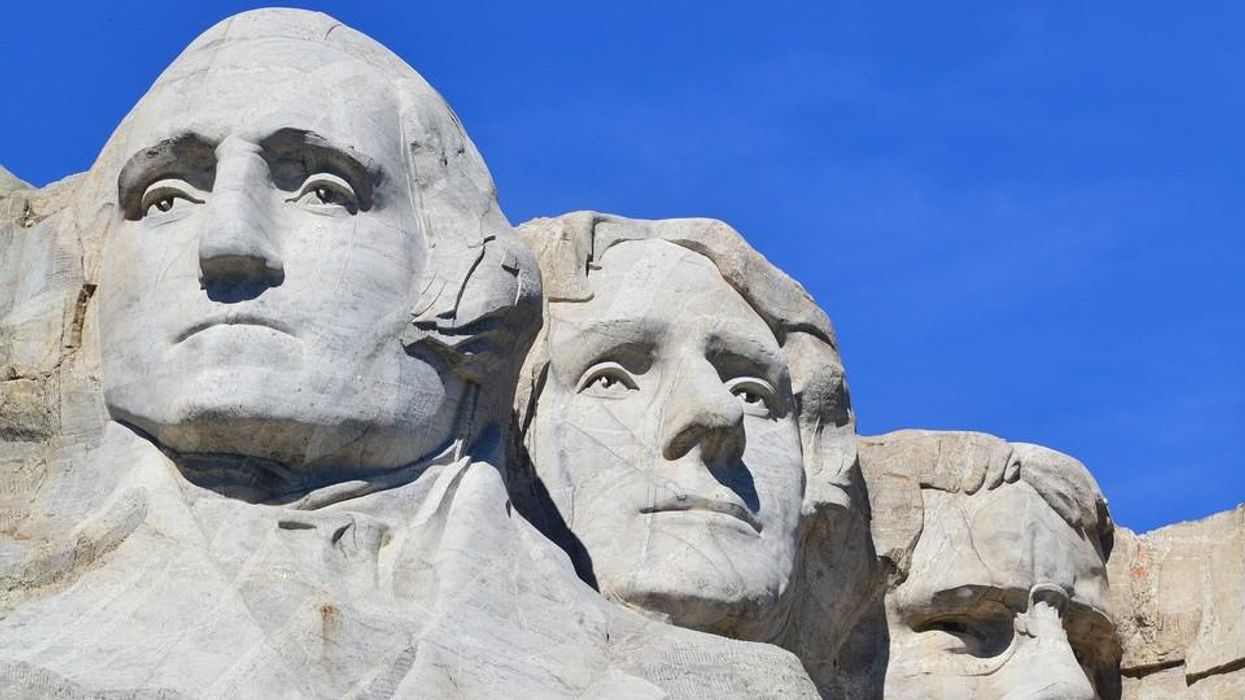Former Fox News host Tucker Carlson has, with the recent exposure of an unredacted text message to one of his producers, done the American people a grand favor. He has unleashed for all to see the truth behind his, and racists’ like him, devotion to white supremacy.
You have probably read about the brouhaha Carlson caused. His text was first seen by Fox executives and board members on the eve of the Dominion Voting Systems lawsuit. Their discovery set off a rapid-fire chain of events. Apparently concerned that if the lawsuit went forward, the text would be revealed in court and expose the support of Fox News for Carlson’s racism. The very next day, the network fired their most popular and lucrative host and agreed to settle the lawsuit.
Those kinds of decisions at Fox are made by one man, Rupert Murdoch. He can’t have been happy about the consequence of either decision he had to make, because both cost him hundreds of millions of dollars. The lawsuit settlement alone cost $787.5 million. Because Fox News accounts for 70 percent of the parent company’s profits, and Tucker Carlson dominated cable ratings in his hour and supported the shows on either side of him, Carlson’s firing is likely to be even more expensive for the network. Ratings during the 9 o’clock hour fell by half the day after Carlson’s show was canceled and have stayed in the tank in the days since.
What set it all off was a single sentence in the Carlson text: “It’s not how white people fight.” I’m not going to bore you by reprinting more of Carlson’s disgusting racist jeremiad, but some context is useful here. The text was sent on Jan. 7, 2021, the day after a violent mob of Trump supporters stormed the Capitol building, assaulting police officers so badly that 140 of them had to be treated for their injuries, with some hospitalized. Five officers died as a result of the insurrection.
Carlson clearly watched the coverage of the violence at the Capitol on Jan. 6, but that wasn’t what he wrote to his producer about. Instead, he recounted having seen footage of three men he described as “Trump supporters” savagely attacking “an antifa kid” at a street demonstration two weeks previously. He went on to describe how he hoped the three-man mob would “hit him harder, kill him.” He then spasmed into a moment of what for him must have been uncomfortable self-reflection, lamenting that “I shouldn’t gloat over his suffering, I should be bothered by it…. if I reduce people to their politics, how am I better than he is?”
Commentators, largely on the left, launched into insta-psychological analysis of Carlson, focusing on what they saw as a mini-crisis of conscience as he appeared to identify with the plight of the antifa kid.
But look at his concluding sentence more closely: the “he” Carlson refers to is the antifa kid, not the Trump supporters who attacked him, so it’s not the attackers he’s comparing himself to, it’s the victim. The key word in Carlson’s statement here is “better.” He’s worried that if he condones such a brutal beating, how can he be “better” than the kid, who as the victim of the attack, hasn’t done anything more than absorb the beating. As for the vicious Trump supporters, well, you can’t do any better than them.
The clear implication of Carlson’s overtly racist observation, “It’s not how white people fight,” is that Carlson believes that white men, because of their whiteness, fight better or more nobly than non-white men. Carlson is clearly implying that those to whom he is comparing White men are Black men, given Carlson’s obsession on his show with attacking not only Black Lives Matter demonstrations after the death of a Black man, George Floyd, but the sentiment and belief of the slogan itself. In Carlson’s political world, Black lives do not matter. White lives matter in his world because white people are better than Black people, especially the White men Carlson appears so worried about.
This is the essence of white supremacy. Where do these ignorant, ignoble, execrable notions come from, that white people are superior to Black people in this country?
Well, they come from none other than Thomas Jefferson himself. Not only did Jefferson write the Declaration of Independence and its words, “all men are created equal” at the same time that he owned about 200 enslaved Black people, he wrote the founding document of white supremacy, “Notes on the State of Virginia.” In his 83 years on this planet, eight of them as President of the United States, Jefferson wrote thousands of letters but only one book, commonly referred to by Jefferson scholars as “Notes.” And so, as citizens collectively descended from Jefferson’s ideas about democracy, it is incumbent upon us that we should pay his one and only book the attention it deserves.
Jefferson wrote the book in 1781, five years after he wrote the Declaration, two years before the end of the Revolutionary War, and eight years before the founding of the country with the signing of the Declaration of Independence. In his book, Jefferson attempted to set forth a description of why he thought his state was a repository of what comprises a civilized society and makes it good and worthy of enduring. He discussed his ideas of governance, including a separation of powers, individual rights, freedom of religion, and other ideas which would find their way into the Bill of Rights, which he and Madison insisted be included in the Constitution as a condition of their signing the document.
A good portion of Jefferson’s book is devoted to a chapter he calls “Laws,” in which he sets forth literal laws and punishments for breaking them, as well as a theoretical framework for solemnizing marriages, settling debts, registration of land sales, inspections of goods such as tobacco and flour and turpentine before sale, defining citizenship and other matters of state.
In a chapter of about 7,000 words, Jefferson devotes nearly 3,000 of them to the subject of slavery, emancipation, and race. Nearly the entirety of his discussion argues against emancipation. He is afraid that freeing slaves, because of the harm that had been done to them, “will divide us into parties, and produce convulsions which will probably never end but in the extermination of the one or the other race.”
He quickly moves on from the existential crisis that would be caused by freeing slaves to the reasons he feels Blacks should not be free. They are “inferior” in every way: “Whether the black of the negro resides in the reticular membrane between the skin and scarf-skin, or in the scarf-skin itself; whether it proceeds from the colour of the blood, the colour of the bile, or from that of some other secretion, the difference is fixed in nature, and is as real as if its seat and cause were better known to us,” he writes. Not done yet, he launches into as racist a description of the physical characteristic of Blackness that exists: “Is it not the foundation of a greater or less share of beauty in the two races? Are not the fine mixtures of red and white, the expressions of every passion by greater or less suffusions of colour in the one, preferable to that eternal monotony, which reigns in the countenances, that immoveable veil of black which covers all the emotions of the other race? Add to these, flowing hair, a more elegant symmetry of form, their own judgment in favour of the whites, declared by their preference of them, as uniformly as is the preference of the Oranootan for the black women over those of his own species.”
Got that? He’s comparing the preference of white people for others of similar appearance to the preference of an “Oranootan” for Black women rather than Oranootan females.
It gets worse, and yet even more familiar. Blacks are stronger, “they seem to require less sleep,” “they are more ardent after their female,” yet their “love seems with them to be more an eager desire,” as compared to, say, white people’s “tender delicate mixture of sentiment and sensation.”
And worse: Blacks are not as educable as whites. “In reason they are inferior;” “they will crayon out an animal, a plant, or a country, so as to prove the existence of a germ in their minds which only wants cultivation.” It would take mixing the races, to which Jefferson expresses strong opposition, to improve the lot of Blacks. “The improvement of the blacks in body and mind, in the first instance of their mixture with the whites, has been observed by every one, and proves that their inferiority is not the effect merely of their condition of life.” But by implication can be blamed wholly on their race.
Finally, Jefferson gets to the nub of his discussion of slavery and race. If slaves are freed, “What further is to be done with them?” He discusses how the Romans did it with their slaves, who had the advantage of being white: “Among the Romans, emancipation required but one effort. The slave, when made free, might mix with, without staining the blood of his master.” But not so Black slaves: “This unfortunate difference of colour, and perhaps of faculty, is a powerful obstacle to the emancipation of these people… with us a second is necessary, unknown to history. When freed, he is to be removed beyond the reach of mixture.”
See that? There is no hope for them because of their Blackness. Jefferson, in his time and by historians known as a man of Reason, cannot see through his own prejudice, born as he says, “of observation.” An engineer, architect, scholar, scientist, and horticulturalist among his other talents, Jefferson was convinced that while anecdotal evidence proved his racist observations, scientific studies would prove his racist theories: “To justify a general conclusion, requires many observations, even where the subject may be submitted to the Anatomical knife, to Optical glasses, to analysis by fire, or by solvents,” he wrote.
His “general conclusion” was the founding statement of white supremacy in this country: “I advance it therefore as a suspicion only, that the blacks, whether originally a distinct race, or made distinct by time and circumstances, are inferior to the whites in the endowments both of body and mind.”
Some of these ideas no doubt had their roots in systemic racism in other societies in earlier times. But Thomas Jefferson put it all down for posterity here in this country. As one of the two or three most important of our founding fathers, his words still carry great weight and can be made to affect our lives every day. The Supreme Court, for example, is in the process of tying the First Amendment, of which Jefferson was one of two authors, into a pretzel to justify discrimination against entire categories of American citizens because of religious beliefs of some.
Jefferson’s disgusting ideas about race still find an eager audience in America. Carlson and his ilk, outright white supremacists such as those Carlson went so far as to invite as guests on his show, embrace Jefferson’s ideas even to this day. Carlson may have lost his platform at Fox News, but he and his ilk are still out there pushing their ideas of white supremacy couched in intellectual batting like the so-called great replacement theory. That fact is all you need to know about the struggle ahead. To end slavery took the Civil War, and yet the war against the Tucker Carlson’s of this world and their not yet dead ideology of race is still to be fought.
Lucian K. Truscott IV, a graduate of West Point, has had a 50-year career as a journalist, novelist, and screenwriter. He has covered Watergate, the Stonewall riots, and wars in Lebanon, Iraq, and Afghanistan. He is also the author of five bestselling novels. You can subscribe to his daily columns at luciantruscott.substack.com and follow him on Twitter @LucianKTruscott and on Facebook at Lucian K. Truscott IV.
Please consider subscribing to Lucian Truscott Newsletter, from which this is reprinted with permission.












